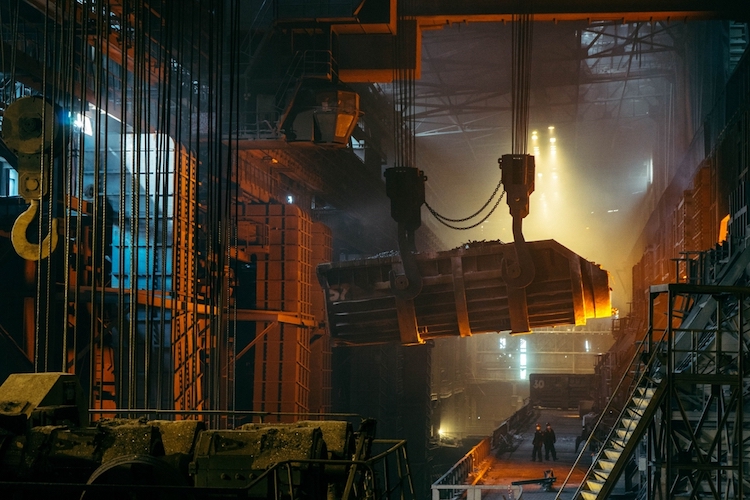By Sean Buchanan
LONDON (IDN) – One of the many challenges facing today’s world is corruption and one sector in which this is particularly evident is that of state-owned enterprises (SOEs).
Controlled by national governments, SOEs rank among the largest companies in the world, often serving as some of the biggest employers in their country. They are central to the daily lives of citizens, providing critical goods and public services in sectors such as transport, utilities, telecommunications and health. If they are corrupt, the impact filters down to all aspects of society.
In a paper entitled ‘State-Owned Enterprises: Beacons of Integrity?‘, the global anti-corruption coalition Transparency International says that “SOEs, whether state agencies or privatised, face similar corruption risks to private sector companies but they have specific higher vulnerabilities coming from their closeness to governments and politics, the scale of assets they control, the considerable value of the public contracts they award and the challenges of the markets and sectors they operate in.”
The study has been published in the run-up to the G20 summit of government representatives from across the globe in Buenos Aires on March 19-20 under the presidency of Argentina.
Transparency International adds: “Their activities present a range of concerns for governments, the business sector and the public, including corruption, inefficient practices (which often facilitate corruption), high debt levels and preferential treatment (which undermines fair competition). These concerns are compounded where there is improper political intervention, poor governance and a lack of transparency and accountability.”
Transparency International has recently developed 10 Anti-Corruption Principles for SOEs, together with a multi-stakeholder group of SOEs, businesses and international organisations, which set out 10 best-practice principles on how SOEs can develop policies and procedures to counter corruption.
The organisation argues that “integrity and transparency are at the heart of these principles. As entities ultimately owned by citizens, SOEs have a higher responsibility to act ethically and set an example for other businesses.”
In particular, the principles emphasise the role of corporate governance in providing accountability to stakeholders through transparency and public reporting, and complement the Corporate Guidelines on Corporate Guidance of SOEs prepared by the Organisation for Economic Cooperation and Development (OECD).
Corruption “undermines good governance, erodes the trust that people place in public institutions, corrodes decision-making, impedes economic development and facilitates organised crime,” declared the G20 Anti-Corruption Plan agreed at the G20’s Hangzhou summit in 2016.
Since its launch at the Toronto Summit in 2010, the G20’s Anti-Corruption Working Group (ACWG) has been a mechanism for cooperation in attempting to raise the standards of transparency and accountability across the G20 and contributing to the global fight against corruption.
Among others, the ACWG is called on to address the issue of encouraging more cooperation at a global level and with the business community and civil society to promote transparency and integrity.
Following a series of meetings of the ACWG in 2018, proposals will be submitted to heads of state and government at the G20 Leaders’ Summit, taking place in November 2018 in Buenos Aires.
“As leaders of major trading nations, the G20 has a special responsibility to establish legal and policy frameworks that promote a clean business environment and to continue to assist G20 countries in their capacity-building efforts to combat corruption,” says Transparency International.
“G20 leaders run the risk of saying the right things but not putting those words into action. They have already adopted a number of anti-corruption principles, including on open data, integrity in public procurement and corporate ownership transparency in recent years. Putting them into action would dramatically help clean up SOEs and restore trust in government,” said Katja Bechtel, Transparency International’s head of business integrity.
The organisation has illustrated its push for the G20 to take action on corruption in the state-owned sector with examples from South Africa, India and Brazil.
It says that further details have recently emerged of a scandal that involves the Johannesburg branch of India’s state-owned Bank of Baroda, which is said to have played a crucial role in moving hundreds of millions of dollars into offshore accounts originating from illegal deals involving taxpayer money.
According to an investigation by the Organised Crime and Corruption Reporting Project (OCCRP) and The Hindu, two state-owned South African companies provided the millions: electricity utility, Eskom, and railroad company, Transnet.
In Latin America in the last two years, corruption scandals involving SOEs have highlighted a devastating waste of taxpayer money through over-priced contracts and corruption-related fines.
As part of Operation Car Wash, one of the world’s largest corruption scandals, employees of Petrobras, the Brazilian state oil company, took approximately 788 million dollars in bribes in return for construction contracts, and used public money to illegally fund political parties.
In calling on the G20 to take action against corruption in SOEs, Transparency International urges member countries to work with SOEs to apply the SOE Principles, and monitor, assess and report publicly on the progress of SOEs. At the same time, the public should be provided with channels (including ombudsmen) for raising concerns regarding SOEs.
G20 countries should also be transparent to the public on how the state directs and works with SOEs to build integrity and counter corruption, and encourage SOEs to advance integrity standards in all countries where they operate, both by acting as champions of integrity and by giving practical support in supply chains and communities.
“SOEs are owned by the public, so they should be beacons of integrity and transparency. Unfortunately, this does not always seem to be the case,” said Delia Ferreira Rubio, chair of Transparency International.
“Citizens deserve quality infrastructure and services. By demonstrating political will at the highest level and adopting these principles, G20 leaders have it in their power to make this happen.” [IDN-InDepthNews – 14 March 2018]
Photo by Ant Rozetsky on Unsplash
IDN is flagship agency of the International Press Syndicate.
facebook.com/IDN.GoingDeeper – twitter.com/InDepthNews

